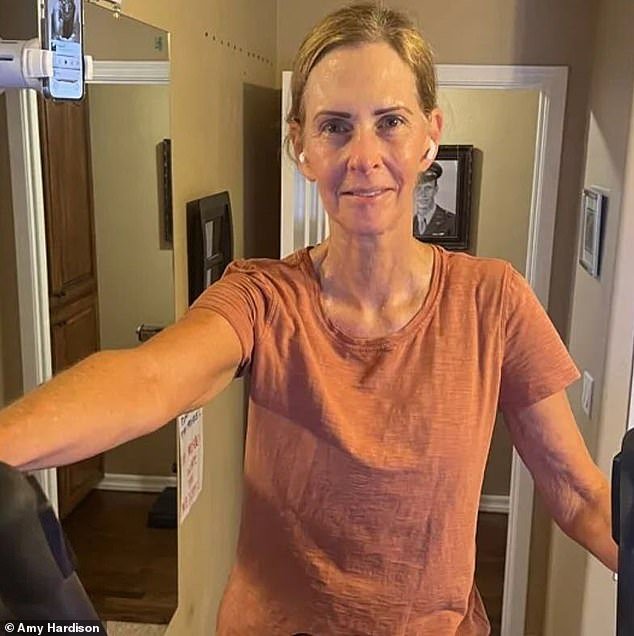Scientists have developed an online calculator that can reveal your body’s real age.
Longevity experts in New York City have created an AI-powered tool that calculates a person’s biological age using 24 questions. All you need is an active email address.
Biological age differs from chronological age because it considers the age of your cells rather than how many birthdays you’ve had.
The older the cells are, the more they wear out, putting people at greater risk of chronic diseases such as cancer.
Your browser does not support iframes.
Amy Hardison, 64, was shocked to discover she had come fourth in the Rejuvenation Olympics, a competition for health obsessives, ahead of billionaires such as Bryan Johnson.
Experts say a good result is a biological age slightly younger than chronological age, or the number of years someone has been alive.
But a biological age that matches the chronological age is also considered a good sign.
However, in cases where the biological age is higher, experts warn that this may indicate a higher risk of heart disease, diabetes and death at an earlier age.
The test also asks users for their arm circumference, but if they don’t know it, they are told to enter the American average of 13 inches.
There is also a question about blood pressure, and users are suggested to use data from the American Heart Association to estimate their own in cases where they don’t know.
A healthy range is 120/80 mmHg, while an unhealthy range is 120 to 129 and less than 80.

Above is a screenshot of the test, which estimates biological age through 24 questions.
Typically, the only way to accurately determine how old a person’s cells are is to perform an expensive blood test.
But the new test is free, requires no needles and is based on results from 47,000 Americans and Europeans.
Test takers first answer questions about their ethnicity, gender, education level and income.
They are then asked about their lifestyle, including weight gain over the past few years, their alcohol consumption and whether they get out of breath when climbing stairs.
The tool, developed by longevity company NOVOS, then analyses the data to reveal a biological age, which is sent to users by email.
It is also possible to complete the questionnaire in the company’s app, which will give recommendations on how to improve the age, such as reducing coffee consumption or setting a fixed bedtime. You can access the test in the app here.
Chris Mirabile, founder of NOVOS, said they have made the tool for estimating biological age more accessible to everyone.
“The longevity movement has gained traction among enthusiasts, but its actual, everyday practice is still very restricted,” he said.
“We want to give people free tools they can use to live healthier, longer lives. Everyone deserves to know their biological age and how certain lifestyle changes can delay it.”
The test is based on a biological clock developed by longevity experts Dr. Su-In Lee and Dr. Matt Kaeberlein of the University of Washington.
Dr. Kaeberlein was the first scientist to suggest that resveratrol, a substance found in red wine, could help reduce a person’s biological age, following studies with worms.
This research was later continued by Dr. David Sinclair, a longevity researcher at Harvard University, although clinical trials have not conclusively shown that the substance can slow aging.
Among those who successfully rejuvenated themselves after discovering their biological age is Amy Hardison, a 64-year-old grandmother of 11 from Mesa, Arizona.
The author and motivational speaker has done an hour of aerobic exercise every day for five decades, lifted weights, stretched, and never took supplements until recently, when she started taking NOVOS Core.
But despite this, he placed fourth in the Rejuvenation Olympics, a contest for health obsessives, beating billionaire Bryan Johnson.
He is currently aging at a rate of 0.74 years per chronological year, according to his epigenetic testing, well below average.
Revealing his reaction to the results, he said: The times“I laughed a little. It was quite ironic that I did that, because I never took any vitamins or supplements.”
You Might Also Like
- Thousands of high-risk cancer genes identified in landmark study—could you be carrying one without knowing it?
- Frightening maps show how deadly fungal diseases are surging across the US – as Michigan woman reveals lung-destroying strain has killed TWO of her relatives
- I’m a GP and these are the reasons I fire a hundred people a month without even speaking to most of them.
- ANOTHER fertility clinic is rocked by heartbreaking egg-freezing ‘fault’ amid fears blunder may have robbed dozens of British women of chance to have children

